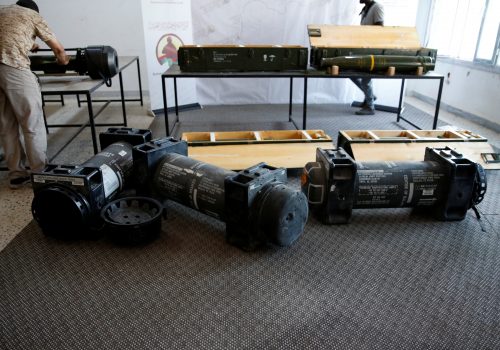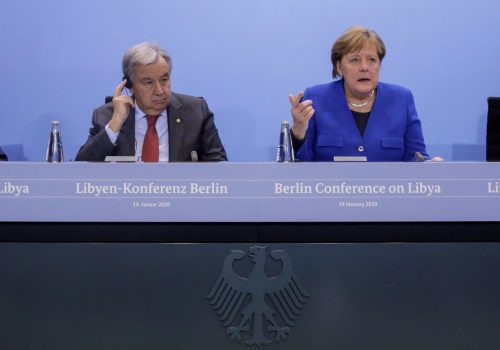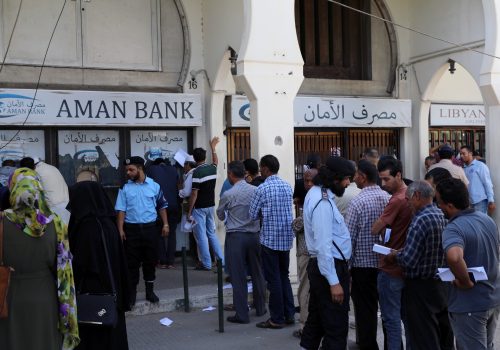Tunisia’s political landscape a decade after the Jasmine revolution
Tunisia is approaching the tenth anniversary of its 2010-2011 Jasmine revolution while facing one of its most challenging periods. This expression has been used repeatedly over the past decade, as Tunisia has not been short on problems.
The country’s 2011 democratic transition and consolidation have often faced significant obstacles. Among those include: tensions between parties in the years after the revolution and within the National Constituent Assembly (NCA); the opaque dynamics linked to the murders of left-wing politicians Chokri Belaid and Mohamed Brahmi; the devastating economic impact of the series of terrorist attacks in 2015 and the broader issue of Tunisians joining Jihadi groups in Syria and Iraq; President Beji Caid Essebsi’s death and the arrangement of a smooth transition of power; the problems of transitional justice and the persistence of profound economic and territorial cleavages.
Now Tunisia is facing the worst economic crisis in its history, caused by the coronavirus pandemic, with over one hundred thousand cases of infections and nearly four thousand deaths in the country. This crisis comes after years of weak economic growth. However, while the economic impact has been devastating, the pandemic has not changed political dynamics significantly.
Kais Saied and the Cold War with Rachid Ghannouchi
Despite all these problems, the Tunisian President, Kais Saied, enjoys a high degree of popularity, particularly compared to other potential competitors. Yet, his favor with the people has been on the decline in recent months.
Saied’s first year in power (October 2019-October 2020) has not been as “revolutionary” as his pre-election rhetoric suggested. Saied has faced several limitations: the pandemic’s impact, which, like many other countries, has taken up much of his political bandwidth and limited his decision-making.
Additionally, Saied has had to face other constraints as well. Although the president is elected democratically, his choices are limited. The centrality of the president within the system depends mainly on political dynamics and personal actions than legal provisions. For example, former President Essebsi emerged as a central figure during his tenure. Still, he had insider experience and the backing of Nidda Tounes, a political party made up of secularists and modernists that, although internally divided, formally supported him.
Saied has neither a party nor a parliamentary faction linked to him and is an outsider, given his academic background. Furthermore, his policy effectiveness is also being undermined by internal divisions within his entourage. Several of Saied’s senior advisors have resigned over the past few months amid disagreements over dynamics within the president’s circle.
There is also another aspect to take into consideration. Saied might not have an immediate interest in being involved in daily political battles or being seen too close to the government. This could be to avoid being tied to their shortcomings and failures or to not be burned out. Indeed, this was the case both with the premiership of Elyas Fakhfakh (February-July 2020) and now Hichem Mechichi.
The risk of being politically worn out exists given the mounting rivalry between Saied and Rachid Ghannouchi, Ennahda party co-founder and speaker of the parliament. For Ennahda, the Islamist party, Saied represents a direct political challenge. This dynamic also points to an often-overlooked aspect of the Tunisian political landscape.
President Saied is a conservative politician, but he is not an Islamist. While the division between secularists and Islamists in Tunisia indeed exist, it is one of many divisions characterizing Tunisia’s diverse society. Saied managed to appeal to Ennahda supporters, as shown by his electoral results in central, south, and rural Tunisia in the presidential elections, even if he is not a classic “Islamist player.”
Moreover, in Tunisia, there is a social conservatism that is more widespread than many believe. This conservatism is also visible in how many so-called secular players approach civil rights and other issues, such as the debate on inheritance equality. Saied has shown a capacity that has managed to appeal to all segments of society. For Ennahda, this ability to embody conservative values and speak to conservative constituencies are a direct attack on their influence.
Populism and the limits of the logic of consensus
Over the past decade, Ennahda has been one of the pillars of the logic of consensus that had dominated Tunisian politics. This includes the post-2014 instrumental coalition between Nidda Tounes and Ennahda and the 2016 Carthage Agreement, which stabilized the role of Essebsi as the gravitational center of the Tunisian political landscape. More recently, this includes the convergence with media mogul and former presidential candidate Nabil Karoui, given the essential role his modernist-populist party, Qalb Tounes, played in supporting the appointment of Ghannouchi as speaker of the parliament.
However, this logic has nurtured resentment among part of the electorate, which has turned to outsiders such as Saied or to politicians whose rhetoric focuses on rejecting this logic of consensus. With that in mind, it is important to analyze and understand the emergence of Abir Moussi, leader of the Free Destourian Party, and Seiffedine Makhlouf, leader of the el-Karama coalition, as crucial actors in the Tunisian landscape.
Although they are ideologically different and, while there has been political infighting, Moussi and Makhlouf are “functionally” similar—they represent parts of the Tunisian electorate who do not accept the logic of tactical convergence of opposing parties that has consistently characterized the post-revolutionary environment.
Moussi represents the modernist frustration with years of entente with Ennahda and Ghannouchi. Her popularity has been on the rise over the past several months. This rise pushed some observers to note that Tunisians are growing increasingly “nostalgic” of the toppled Ben Ali regime, given that Moussi represents these counter-revolutionary tendencies. This view is one-sided, though. Moussi has never hidden her positive views of the previous regime and this nostalgia indeed exists among some ordinary Tunisians.
Still, her popularity depends primarily on the broad yet diversified bloc of those who do not like Ennahda and have been left with no representation. Moussi is also trying to present herself not just as a Ben Ali-nostalgic, but as a champion of the broader Tunisian modernist camp. This is shown by the continuous tributes she pays to Habib Bourguiba, the country’s first president, who many considered to be “the father of the nation.”
On the other hand, Makhlouf, with his Salafi-populism, is capitalizing on the centrist convergence of Ennahda, which has left parts of its historical constituencies, particularly in the south, disoriented. For instance, the anti-colonial and anti-French sentiment existing among many conservative constituencies in Tunisia—which was a central element of Ennahda rhetoric and political identity before 2011—is one of the themes on which Makhlouf focuses the most.
Moving forward
As Tunisia approaches the tenth anniversary of its revolution, it faces a pandemic that has induced a historical economic crisis with significant social and political ramifications in the years to come. Economic distress will inevitably fuel discontent, adding to the frustration that many have against political parties and leaders. Nevertheless, most of the dynamics currently characterizing the Tunisian political landscape have little to do with the coronavirus’ impact, as their roots are firmly rooted in dynamics that started long before the pandemic began.
The logic of consensus that has dominated Tunisian politics over the past few years has started showing its limitations, beginning with the 2019 presidential elections. There is a mounting frustration among parts of the electorate, fueling the rise of opposite yet functionally similar versions of populism. The post-revolutionary establishment is resisting by supporting—although not consistently—the current government of Hicham Mechichi, as they fear early elections could result in a larger role for Moussi and Makhlouf.
Over the coming months, this pro-status quo approach will come under more pressure, as the economic impact of the pandemic will become more prevalent. This will only add to the frustration with the inability of the post-2011 political establishment to provide actual answers to urgent everyday problems, leaving more room for populist actors to boost their rise in Tunisian politics.
Dario Cristiani is the IAI/GMF Senior Fellow, German Marshall Fund/Istituto Affari Internazionali.
Image: Tunisian MPs attend a plenary session devoted to discussing a motion tabled by the Free Destourian Party (PDL) and the situation in Libya, on June 3, 2020. - The plenary session is held against the backdrop of heated controversy over the contacts made by Assembly President Rached Ghannouchi with a stakeholder in the Libyan conflict. Ghannouchi, leader of the Islamist-inspired Ennahdha party, overshadows the President of the Republic Kais Saied on the diplomatic scene, a sign of deep tensions despite the sacred union during the health crisis


